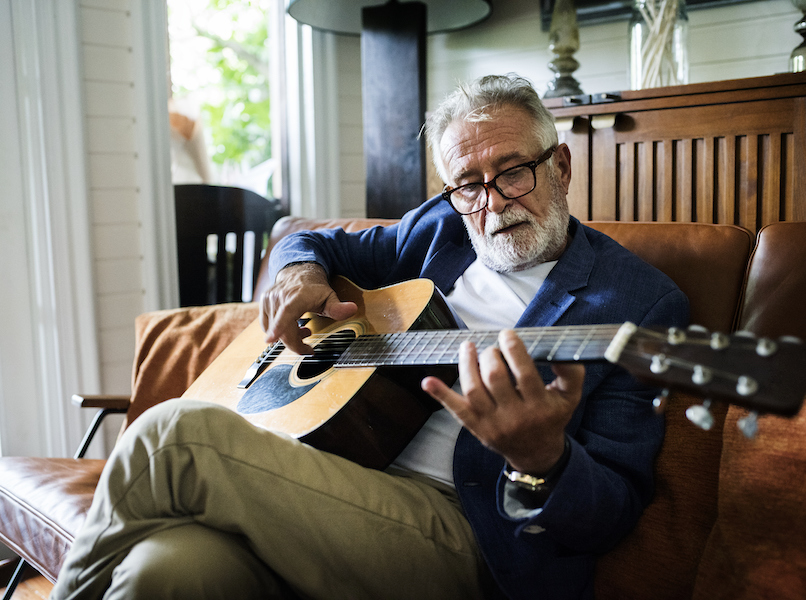
What do people in this country do on their days off? You can understand more about a person by looking at the things they do to relax. For instance, the American Time Use Survey produced by the Bureau of Labor Statistics states you are able to judge how much a person makes if you know their favorite hobby. It seems the more money you have, the more free time you spend improving your appearance at the gym, jogging or playing games on the weekend. Clearly, there is a major difference between the person who jumps out of a plane for fun and the one who hits the golf course once a week, right? The skydiver is looking for adventure, and the other person wants a life without the adrenaline surge.
These same things you do to relax relate to your hearing health, as well. You think what you enjoy on your days off is fun but what is it doing to your ears? Take some time to think about what you like to do and how it might affect your hearing.
Could a Hobby Lead to Hearing Problems?
When it comes down to it, noise is the major culprit in hearing loss. According to the Center for Disease Control and Prevention, noise that falls at a certain volume level will damage to the delicate mechanisms of the ear like:
- Hair cells
- Membranes
- Nerves
Sound goes into the ear in a wave. How strong that wave depends on different factors like volume and distance, which are two of the most important. The sound goes through the ear canal to be amplified by the eardrum, or tympanic membrane, as it enters the middle ear.
In the middle ear, three small bones work together to transmit the vibrations caused by the amplified sound wave to a flexible membrane that sits on the cusp of the inner ear. The combination of the bones and the membrane strengthen the sound even more.
The vibration from the sound wave enters a fluid-filled chamber in the inner ear called the cochlea, causing the fluid to move. It’s that movement that makes the tiny, and very delicate, hair cells in the cochlea wave in a way that creates a kind of electrical message. To put it simply, the hair cells turn the sound wave into something the brain can interpret. Once it gets the message, the brain allows you to comprehend what you hear.
For instance, let’s say you turn the radio on in your car. The sound created by the music enters the ears with the help of the pinna, or outer ear. It is amplified by the tympanic membrane, moving the small bones, which, in turn, vibrate the membrane at the entrance to the cochlea. The fluid in the cochlea moves as the membrane vibrates causing the hair cells to wave sending an electrical message to the brain. The brain decodes the message and tells you there is music playing. All the happens almost instantaneous and without you even having to think about it. Not only do you hear the sound, you understand it, you know what direction it is coming from and whether you enjoy or hate it.
What Happens When the Volume Goes Up
Now, imagine a runner who wears headphones to pass the time. That’s a little bit like firing a gun from point blank range. The sound wave that enters the ear is already strong. It bursts through the eardrum, maybe damaging it. Causes the bones to move dangerously fast, creating a larger wave in the fluid of the inner ear; one that will eventually damage the hair cells.
What if your favorite hobby is motorcycle riding. The noise of the engine roar can cause similar damage. Decibel (dB) is the measurement associated with sound. Any sound above 85 dB can cause hearing damage. The average motorcycle engine can generate up to 100 dB of sound. The traffic you hear when driving in your car to the golf course is around 85 dB. The lawn mower comes in at about 107 dB.
What Hobbies can Cause the Most Hearing Damage
Anything you do that involves sound over 85 dB is a problem. Normal conversation or music playing at a reasonable volume measures at about 70 dB to give you an idea of what sounds might be a problem. Some of the top hobbies that can cause ear damage include:
- Motorcycle riding
- Home Improvement
- Woodworking
- Sporting or music events
- Driving with the top down
- Paintball
Add to this list anything you do with headphones or earbuds in place including video games or listening to music.
What You Can Do To Protect Your Hearing
You don’t have to give up your favorite hobby, just be smart about it. First and foremost, avoid wearing headphones or earbuds for anything. If you enjoy a hobby that requires you to used drills or hammer, get hearing protection like ear plugs or muffs. If you go to a concert, sports arena or a local bar to enjoy live music, consider musician earplugs that preserve sound quality but reduce the noise exposure.
You only have two ears, so treat them right. Go ahead and have some fun on your day off, just turn down the volume.
